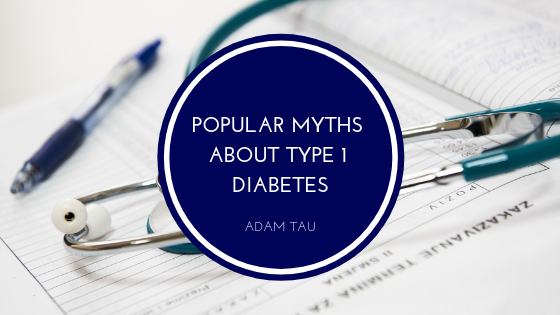Unless you are personally affected by Type 1 diabetes, chances are you have some misconceptions about what the disease entails. Many people don’t have a full understanding of the complexity of Type 1, but today we are going to bust a few of the most popular myths associated with Type 1 Diabetes.
Myth: If you eat too much sugar you will get Type 1 Diabetes.
Fact: Type 1 Diabetes occurs when the immune system is fighting infection, but attacks and destroys insulin-producing cells located in the pancreas. While there is no known cause, scientists think that the condition is linked to genes and environmental factors, like viruses.
Myth: To be cured of Type 1 Diabetes, all you have to is exercise and have a healthy diet.
Fact: Unfortunately, there is still no treatment for Type 1 Diabetes. While following a diet and implementing an exercise routine is beneficial to anyone managing diabetes, it is not a cure.
Myth: Someone with Type 1 Diabetes isn’t allowed to eat any sugar.
Fact: Diabetics with Type1 are not restricted from indulging in sugar. The insulin that Type 1 Diabetics have to administer will help keep blood sugar levels normal whenever they eat sugar or carbs. They key is to consume sugary items in moderation. Too much sugar in your diet is bad for you, regardless if you have diabetes or not. When diabetics have low blood sugar, consuming sugar can actually save their life.
Myth: If blood sugar levels are too low or high the blame is on the person with Type 1.
Fact: The person with Type 1 is not to blame for low or high sugar levels. The fluctuation in levels can occur for multiple reasons including insulin, exercise, illness, stress, or hormones.
Myth: Type 1 Diabetes is far worse than Type 2 Diabetes.
Fact: No matter what type of diabetes you have, all are serious. Out of the 12 different types of diabetes, Type 1 and Type 2 are the most commonly known. Regardless of what type of diabetes, with the proper management, all people can live relatively normal lives.
Myth: Only children can get Type 1 Diabetes.
Fact: Previously, Type 1 Diabetes was considered a childhood disease. However, after more research was conducted, it was found that adults are just as likely to develop diabetes as children. Research conducted by the University of Exeter Medical School showed that more than 40 percent of Type 1 Diabetes cases resulted after the age of 30.
Whether you are a child, a teen, or an adult, Type 1 Diabetes does not discriminate.
